A Rohingya refugee named Shonjida, has experienced years of boredom, misery and violence in Bangladesh. However, the overthrow of the autocratic former prime minister, Sheikh Hasina, last month has given her new hope for the future.
Around one million members of the stateless and persecuted Muslim minority live in Bangladesh’s vast refugee camps, after fleeing violence in their homeland of Myanmar.
Hasina was praised by the international community in 2017 for opening the border to some 750,000 Rohingya fleeing Myanmar’s military crackdown, which is now the subject of a UN genocide investigation.
However, the years since have seen rampant malnutrition and regular gun battles in the camps, whose residents hope that Hasina’s ouster will bring renewed attention to their plight.
Also Read: Egypt, Qatar Deliver Trump’s Gaza Ceasefire Proposal to Hamas
“We and our children live in fear at night because of the shelling,” said 42-year-old Shonjida, who uses only one name. She spoke to AFP.
Shonjida teaches at one of the informal learning centers set up for school-age children in his camp, giving him an unsettling insight into the issues facing his community.
The learning centers are only able to serve a small percentage of families in the camp, whose status as refugees makes them unable to attend school, college and work in the local job market in Bangladesh.
Many of the students are malnourished. Declining international aid has forced successive cuts in rations.
Also Read: Israeli Airstrikes Kill 54 Palestinians Across Gaza
And they are frightened by the threat of militant groups vying for control of the camp, with more than 60 refugees having been killed in clashes so far this year, according to local media reports.
“We want peace and no more shootings. We want our children not to be afraid anymore,” Shonjida said.
“Now that the new government is in power, we hope it will give us peace, support, food and security.”
Island prison in the sea
Also Read: School Bus Explosion in Pakistan Kills Five, Military Accuses India
Hasina was ousted last month in a student-led revolt, which forced her to flee into exile in neighboring India, moments before thousands stormed her palace in the capital Dhaka.
The revolution ended Hasina’s 15-year rule tainted by extrajudicial killings of opponents, press restrictions and a crackdown on civil society.
Her decision to accept Rohingya refugees fleeing Myanmar earned her a diplomatic reprieve from Washington and other Western capitals, which had previously issued regular reprimands for abuses committed during her tenure.
However, his government’s struggle to accommodate the refugees in the years that followed was also the subject of regular criticism by human rights groups.
Also Read: Half a Million People in Gaza on the Risk of Starvation: IPC
The government relocated at least 36,000 Rohingya to the previously uninhabited and storm-prone island of Bhashan Char to ease overcrowding in the camps.
Many of those sent there say they were forced to leave. One refugee described their new home to Human Rights Watch (HRW) as an “island prison in the middle of the sea”.
The deplorable situation in the camps has also prompted thousands to undertake dangerous sea journeys to seek new refuge in Southeast Asian countries. Many drowned at sea.
How can we go back?
Also Read: Israeli Captive Says “Only a Deal Will Bring Us Home”
Nobel Peace Laureate Muhammad Yunus, who leads the interim government ahead of new elections, began his term last month by pledging to continue helping Rohingya refugees.
Many refugees said they were encouraged by the early weeks of the 84-year-old’s administration.
“We see on Facebook and YouTube that many of our community leaders have spoken to them and met with them,” said Rohingya community leader Hamid Hossain, 48. “I am more hopeful now.”
However, Yunus also said that Bangladesh needs “sustained efforts from the international community” to look after the Rohingya.
Also Read: Al-Quds Brigades Seize Israeli Surveillance Drone Over Khan Younis
This week he traveled to the United States and lobbied for more foreign aid for the Rohingya, with the US State Department announcing nearly $200 million in additional funding after Yunus had a private meeting with President Joe Biden.
Yunus also called for accelerated resettlement of Rohingya in third countries, at a time when the prospects of refugees being safely returned to their original homes seem slimmer than ever.
The Rohingya have suffered decades of discrimination in Myanmar, where successive governments have characterized them as illegal immigrants, despite their long residence in the country.
Hasina’s government and Myanmar made several failed plans to establish a repatriation scheme, which was opposed by refugees who did not want to return home without guarantees of their safety and civil rights.
Also Read: Hamas Expresses Readiness for Comprehensive Deal with Israel for Hostage Release
The security situation has deteriorated drastically since last year. Areas of Myanmar’s majority Rohingya communities have been the site of fierce clashes between the military and rebel soldiers fighting the country’s military junta.
“There is killing there,” 42-year-old refugee Mohammad Johar told AFP. “How can we go back?” (T/RE1/P2)
Source: Mizzima
Mi’raj News Agency (MINA)
Also Read: Israel Reaffirms Total Blockade on Humanitarian Aid to Gaza Amid Global Outcry






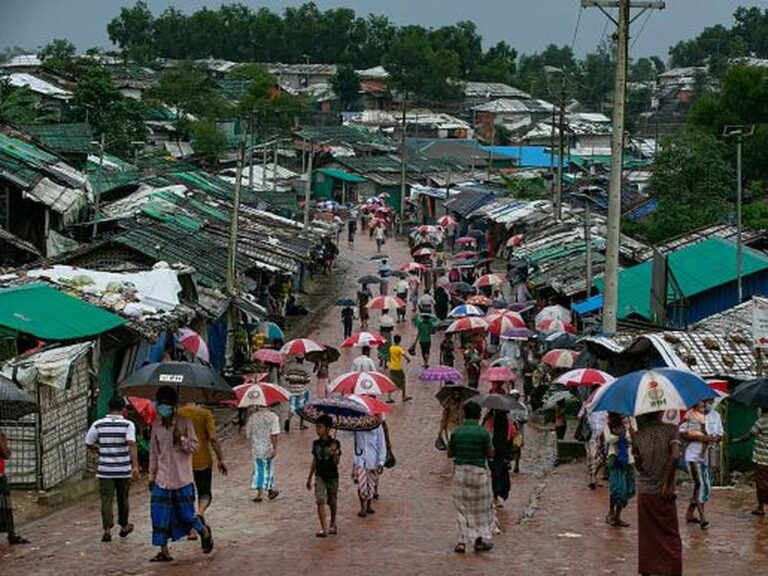





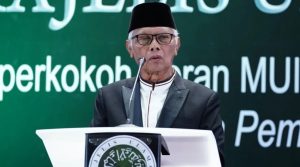
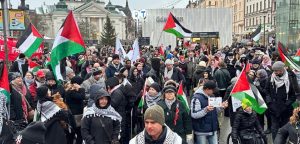

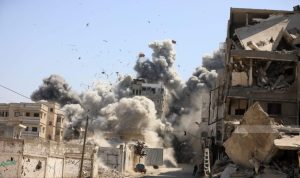
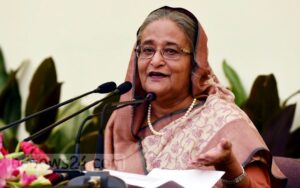
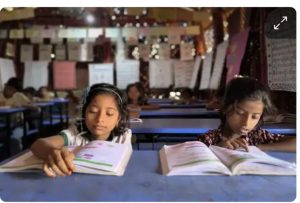

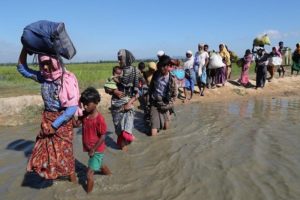
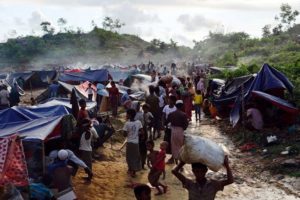















 Mina Indonesia
Mina Indonesia Mina Arabic
Mina Arabic